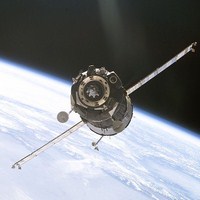At the beginning of the space age, the United States “had a vision of space as infinite” said Clay Moltz of the U.S. Naval Postgraduate School during recent remarks at the Stimson Center. In the intervening decades, as U.S. activities in space have expanded and the number of space-faring nations has increased, the usable orbits around earth have become crowded.
To manage this state of affairs, the United States has sought to expand international cooperation in space, partly with an eye toward protecting the space assets of U.S. companies, scientists and troops fighting on the ground. Of particular concern are issues like the management of space debris and the risks posed by land- and space-based anti-satellite (ASAT) weapons.
Moltz expressed optimism about the prospects for space cooperation, and noted that the U.S. is talking to more countries about it than ever before. But, he warned, “the governance mechanisms for space are largely products of the Cold War,” and they are oriented toward countries rather than companies or individuals.

